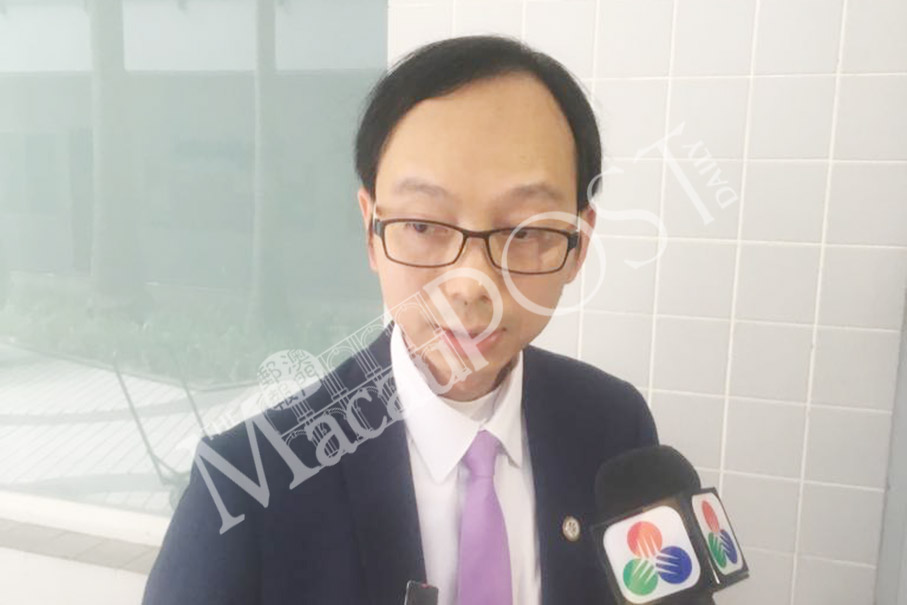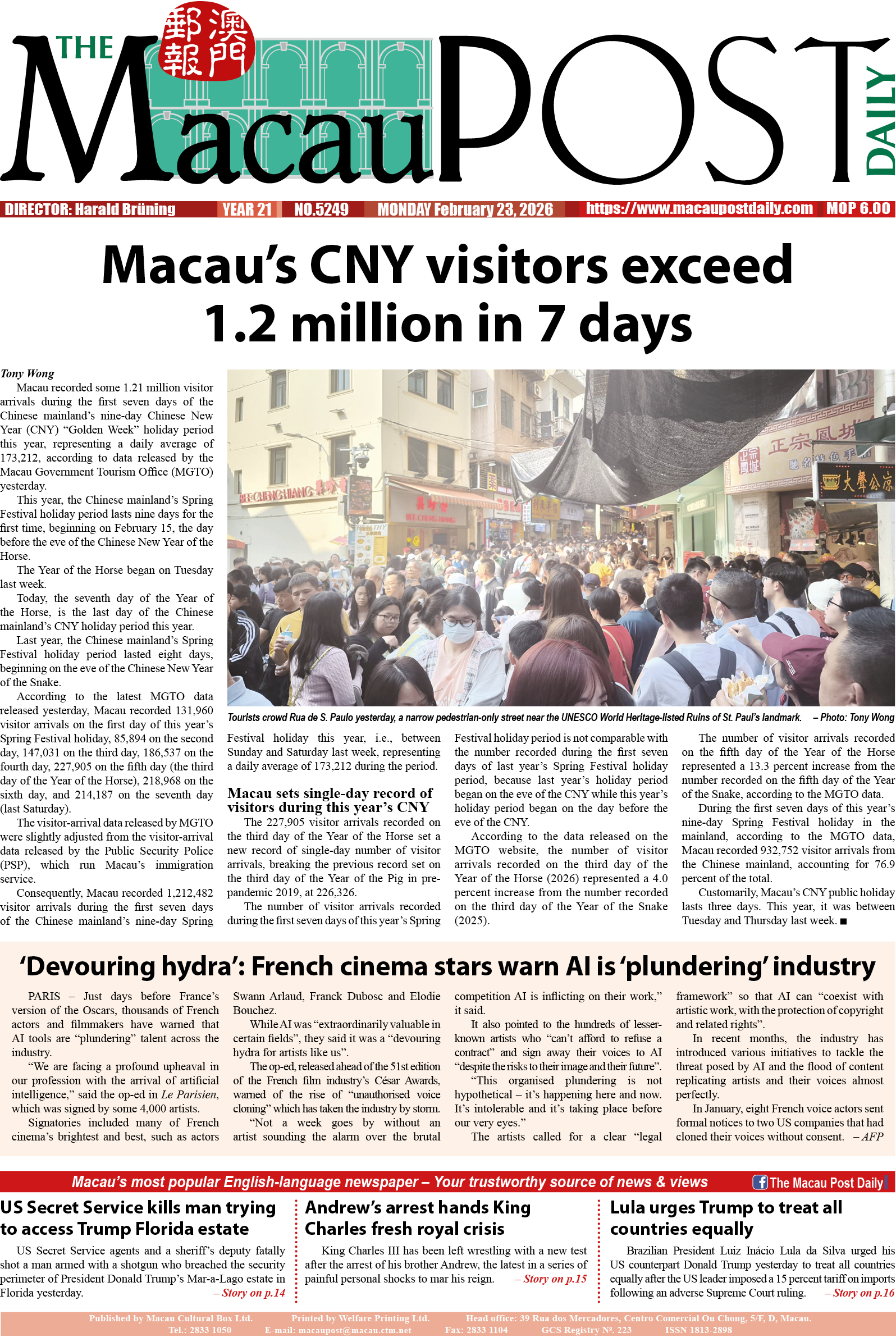As typhoon memories have an impact on every aspect of local residents’ daily lives, historical narratives about past typhoons should be collected and preserved as a part of Macau’s history, Oral History Association of Macau President Lam Fat Iam said yesterday.
Lam, who also heads the public Macau Polytechnic Institute’s (IPM) Centre of Sino-Western Cultural Studies, made the remarks in an interview on the sidelines of a certificate-awarding ceremony of the association, at the Institute for Tourism Studies (IFT) in Mong Ha.
During the ceremony, the association reviewed several oral history projects conducted this year, including a project based on the theme of typhoons.
Lam said the idea of a typhoon-themed oral history project was triggered by Super Typhoon Hato – which caused 10 fatalities and 244 injuries a year ago. He said that after the catastrophe, his association decided to launch a project highlighting the impact of natural disasters on the city’s daily life, so they interviewed local residents about their memories of the city’s typhoons in the past 20 or 30 years.
According to Lam, some frontline workers, such as doctors, nurses, firefighters and police officers who were on duty during typhoons, were interviewed for the project. Meanwhile, other interviewees were residents who still have, or used to have, a less urban lifestyle, including fishermen, villagers and those living in wooden huts.
“The younger generation [is used to] modern technology and modern [solid] buildings, which are of good quality. It is hard for them to imagine how devastating a typhoon could be. However, the older generation is not like that, especially for those working as fishermen, and those living in wooden huts. When a typhoon approached Macau, they were on high alert and on guard,” Lam remarked.
Lam pointed out that the project has also recorded how neighbourhoods used to be organised, when residents had fewer resources but were still a genuine community and would help each other out before, during and after a typhoon.
Lam noted that these local typhoon stories will be featuredin a book entitled “Typhoon Memories – City on Alert”, slated to be released in the first half of next year.
According to Lam, the association will also conduct a project on lepers, who used to live in Coloane’s Our Lady of Sorrow settlement, as well as a project on how life has changed for senior residents since 1999 when the Macau Special Administrative Region (MSAR) was founded.
Executive Council spokesman Leong Heng Teng, who is the honorary president of the association, said in a speech at yesterday’s event that as the group had managed to interview several elderly residents – some of whom passed away after being interviewed – he was grateful that their voices and experiences had been recorded. He added that people of different occupations, “whether bakers or craftsmen”, all have made their contribution to Macau.

Lam Fat Iam, president of the Oral History Association of Macao, gives an interview on the sidelines of a certificate-awarding ceremony of the group, at Institute for Tourism Studies (IFT) in Colina de Mong-Há.
Photo: Joel Chu






